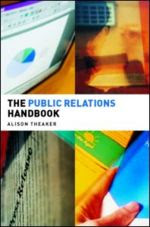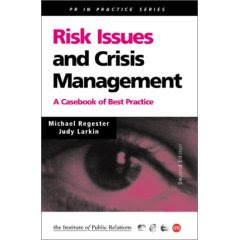
No matter how good a company is in its operations and no matter how well they avoid crises, things can and will always go wrong. There are various contingencies that affect how to define a crisis. Wilcox et al. (2003) defines it as an extraordinary event that adversely affect the integrity, the reputation or financial stability of an organisation. Tench (2006) describes it as an event that disrupts normal operations of a company.Tench cites that crises come in two forms. The first one is the chronic type where a crisis starts as a small issue then explodes into a major disaster. The other form is the sudden and unexpected like an accident. Arguably, it is crises that involve tragic loss of life like plane crashes which lead to more public and media scrutiny and thus require a strategic and concrete management plan.
The role of public relations in crisis management is critical as it helps manage the communication between an organisation and its publics while at the same time ensuring that the reputation of the organisation is not damaged.
Tench observes that the key to effective crisis management is preparedness. This means that a crisis should be identified before it happens and when it does happen should not be let to get out of control.
Trench’s argument is debatable in cases where crises occur suddenly without warning for instance the case of the American terrorist attack on September 11th. In such cases the managing the communication surrounding the crisis effectively becomes critical and largely determines the outcome of the crisis.
There are key steps to observe when faced with a crisis. Regester and Larkin (2002) cite that the first step should be to relay information in a quick and timely manner. In other words speed is of essence and an organisation should adhere to 'tell it all, tell it fast and tell it truthfully.' This helps in opening up communication channels and reducing chances of isolation or appearing to cover up information. It is also important because the media as well as the public will create their own rumors if no information is given to them which could cause significantly more damage.
Monitoring what the media is reporting and making corrections and emphasising the organisation’s stand as and when required also stamps out inaccurate reporting which could be misleading to the public.
The role of public relations in crisis management is critical as it helps manage the communication between an organisation and its publics while at the same time ensuring that the reputation of the organisation is not damaged.
Tench observes that the key to effective crisis management is preparedness. This means that a crisis should be identified before it happens and when it does happen should not be let to get out of control.
Trench’s argument is debatable in cases where crises occur suddenly without warning for instance the case of the American terrorist attack on September 11th. In such cases the managing the communication surrounding the crisis effectively becomes critical and largely determines the outcome of the crisis.
There are key steps to observe when faced with a crisis. Regester and Larkin (2002) cite that the first step should be to relay information in a quick and timely manner. In other words speed is of essence and an organisation should adhere to 'tell it all, tell it fast and tell it truthfully.' This helps in opening up communication channels and reducing chances of isolation or appearing to cover up information. It is also important because the media as well as the public will create their own rumors if no information is given to them which could cause significantly more damage.
Monitoring what the media is reporting and making corrections and emphasising the organisation’s stand as and when required also stamps out inaccurate reporting which could be misleading to the public.





No comments:
Post a Comment